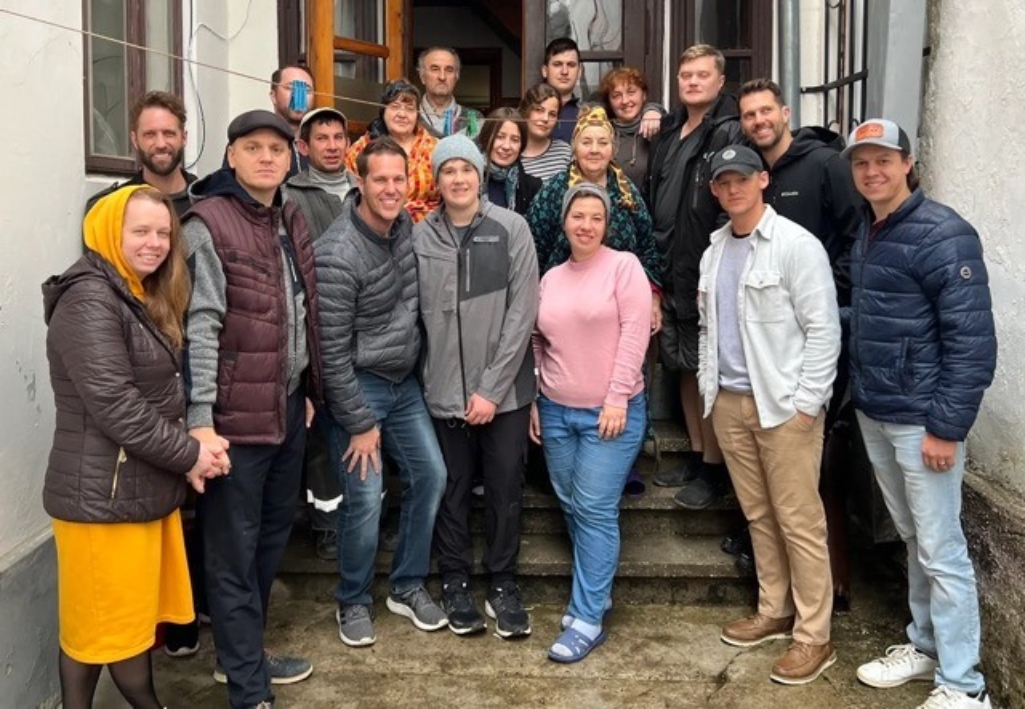
“The Jesus Music,” a new documentary depicting the rise of the contemporary Christian music (CCM) genre, released in theaters Oct. 1.
The documentary features interviews with a wide variety of CCM artists both new and old, including Michael W. Smith, Amy Grant, Lauren Daigle, TobyMac, Kirk Franklin, Bart Millard and Bill Gaither.
The film chronicles the history of CCM from its beginnings as the music closely associated with the “Jesus Movement” of the late ‘60s and ‘70s, to its transformation into an industry.
Smith and Grant also serve as executive producers on the project, which is directed by Jon and Andy Erwin, known for the films “Woodlawn,” “I Can Only Imagine” and “I Still Believe.”
“I don’t think you would be able to make this story again because COVID created an environment where all of the artists’ tours were stopped, all our films were put on hold and we had this moment in time to capture and tell this story that had never been told before,” Jon Erwin said in an interview with Baptist Press.
The filming began in early 2020 when things began to shut down due to the COVID-19 pandemic. All of the Erwins’ film projects were put on hold, and they were told it was only possible to film content with a production crew of 10 people or fewer.
Those restrictions made the brothers gravitate toward a documentary project, but that doesn’t mean it was easier to film than some of their previous biopics.
“Those films are depicting events, but in this film, and why documentaries are actually more difficult to make is you’re discovering the story,” Jon Erwin said. “It was a process of discovery, and I have never felt as much like a detective as our work on putting this story together.”
In addition to documenting the impact of iconic artists such as Grant, Michael W. Smith, Kirk Franklin and DC Talk, the film also touches on the struggles and controversies that have surrounded some of the genre’s most popular artists.
Issues such as death, divorce, conflict and racial reconciliation are discussed in the film, which features interviews with the artists themselves.
Andy Erwin said the intention of the film is not to cause more controversy or shame the artists but to understand the difficulties and challenges that come with notoriety.
“What we said to these artists from the beginning is we’re not interested in chasing scandal; we’re very interested in understanding the struggle,” he said. “Our desire was to include and explore those topics in a way that is hopefully honest and allows them to be human.”
Andy said the film gave them the opportunity to tell the history of CCM and to look forward to what lies ahead.
“Our desire was to look back and honor the legacy of those who came before, and then to look forward to hand the baton off to fresh runners in this race,” he said.
Beyond the artists themselves, Andy is glad audiences are able to see the project together in theaters after an extended time in which singing corporately in church was sometimes limited or not an option.
“The timing on both ends of this project was really exciting,” he said. “After a time where we weren’t able to gather and sing, we hope that it will remind us of the power of music and the power of celebrating that music as a community.”
Jon Erwin said despite the difficult season these 18 months have been, he hopes the film provides audiences a much needed “rush of hope.”
“The idea on display is that the best, most relatable, most inspiring and most hopeful art can come out of the deepest struggles,” he said. “Sometimes the difficult things that we go through in life are where we find our voice.
“We need a rush of hope, and I hope the audience is entertained and inspired. I hope it rekindles the dreams of the audience. What a group of unlikely people (CCM artists), and yet they were all used collectively to create this platform called Christian music.
“I hope people see God can use them just as great or greater. … God can use you in a huge way no matter what. As scripture says, He uses the weak things of the world to confound the wise” (1 Corinthians 1:27).
(EDITOR’S NOTE – Timothy Cockes is a Baptist Press staff writer.)


